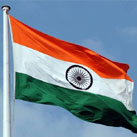Independent Kashmir: An Incomplete Aspiration: Christopher Snedden, Manchester University Press, Manchester
Independent Kashmir: An Incomplete Aspiration by noted author and expert Christopher Snedden touches upon a raw nerve in the discourse on Kashmir—the aspiration for independence. Snedden describes how and where exactly the idea germinated, sequentially tracing its evolution. This is Snedden’s third book on Kashmir; the first focussed on the so-called ‘Azad Jammu and Kashmir (AJK)’ that together with Gilgit-Baltistan forms Pakistan-occupied Kashmir (PoK). The second book focused primarily on Jammu and Kashmir (J&K) in India.
- Published: November 2022













